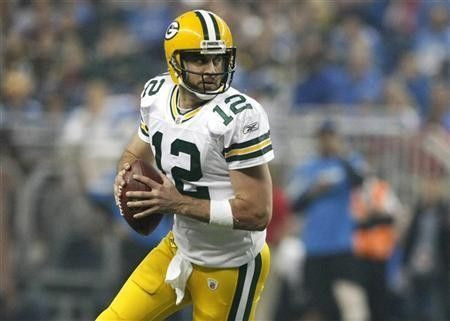Super Bowl champ Green Bay Packers stock sales brisk

Fans of the Super Bowl champion Green Bay Packers snapped up shares in the opening minutes of the team's public stock sale on Tuesday, slowing the website under demand for an ownership that conveys mainly bragging rights.
The offering, the fifth in the 92-year history of the team, gives fans the opportunity to own a piece of the defending champions, undefeated through 12 games this season, but is unlike traditional U.S. common stocks.
First and foremost it is a way for them to support and help the team and it does give them significant bragging rights, Packers President and CEO Mark Murphy told reporters. They can say they are owners of a Super Bowl champion team.
The Packers launched the offering to reduce the borrowing needed for a $143 million expansion of its iconic Lambeau Field in Green Bay, which is the smallest U.S. city that has a major professional sports franchise.
The Packers are the only publicly-owned major professional sports team in the United States, an ownership structure that helps keep the National Football League team tethered to Green Bay, a city of about 104,000 in northeast Wisconsin.
Before the offering the team had about 112,00 stockholders with a total of 4.75 million shares. The majority of owners live in Wisconsin, though there are stockholders in all 50 U.S. states.
Ownership in the Packers confers voting rights, but the shares offer no dividend, no chance for appreciation, practically no transfer rights and not even a shot at a highly prized season ticket.
The team is offering 250,000 shares at $250 each. If all the shares were sold the offering would raise $62.5 million toward an expansion of Lambeau Field announced last summer.
The team has lined up debt financing for the entire $143 million expansion, but is using the stock offering and other sources of funding to reduce the borrowing.
The team has penciled in very conservative net proceeds of $22 million from the stock sale and could raise $13.4 million from user fees on the 6,700 seats being added to the stadium if it charges a fee similar to the last expansion.
The team also expects the NFL stadium funding program to provide some support for the project.
The stock offering continues through February 29 of 2012, a leap day. Packers players are known for jumping into the crowd at the back of the end zone after scoring touchdowns in what has come to be known as the Lambeau leap.
The team bylaws and NFL rules severely restrict transfers of the stock. The shares may only be transferred to heirs, relatives, or back to the team at a severe discount.
Stockholders may buy special Green Bay apparel, including Super Bowl champion offerings, and attend the annual meeting held at Lambeau Field on the eve of training camp each year.
Team ownership does not grant season-ticket holder privileges, but the expansion to nearly 80,000 seats is expected to make a dent in the waiting list, Murphy said.
In good years or bad, the Packers season-ticket base has been extremely strong. The team has been sold out on season tickets since 1960.
Fans who received the right to buy tickets this year had been on the waiting list for 35 years. Of course, the list was less than 10,000 names long when they joined it.
The team offers no estimate of how long it will take for people joining the list today to reach the top. The list is now at 93,000 names and perhaps 70 to 90 people reach season ticket status each year.
The waiting list had averaged about 83,000 names for many years and then jumped by about 10,000 as the expansion plan circulated, Murphy said.
The offering is open to individuals, including spouses in joint tenancy, in the United States, Guam, Puerto Rico and the U.S. Virgin Islands.
Participants are barred from acquiring more than 200 shares from the current offering combined with the previous stock offering in 1997. The team also had stock offerings in 1923, 1935 and 1950.
© Copyright Thomson Reuters {{Year}}. All rights reserved.





















